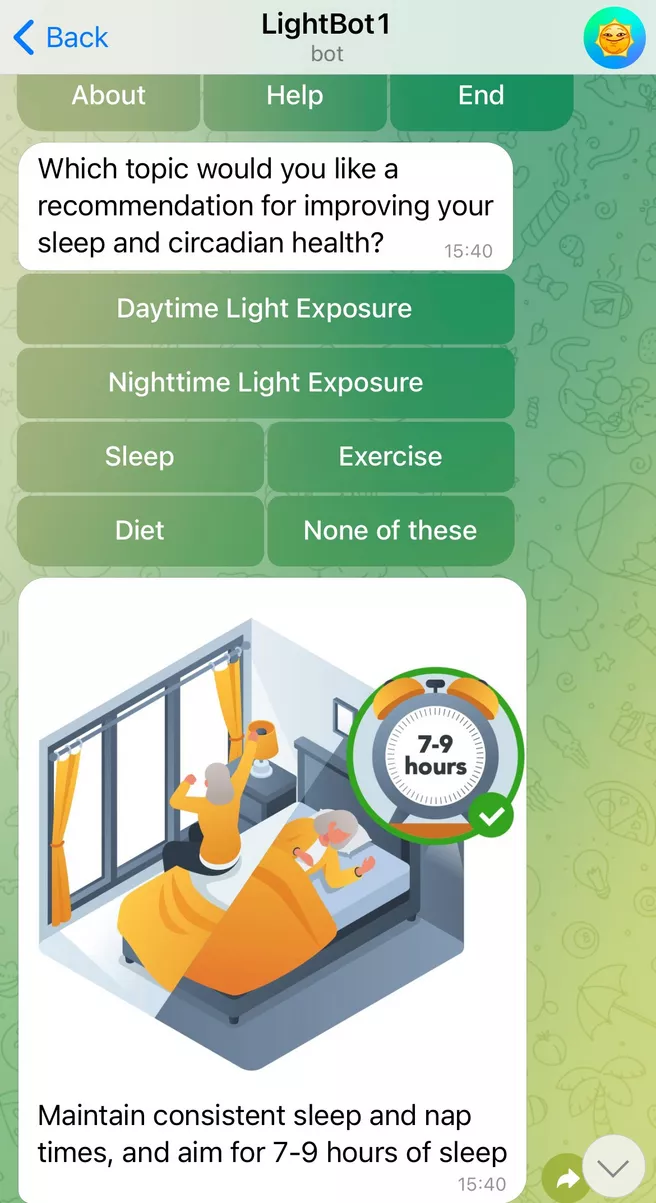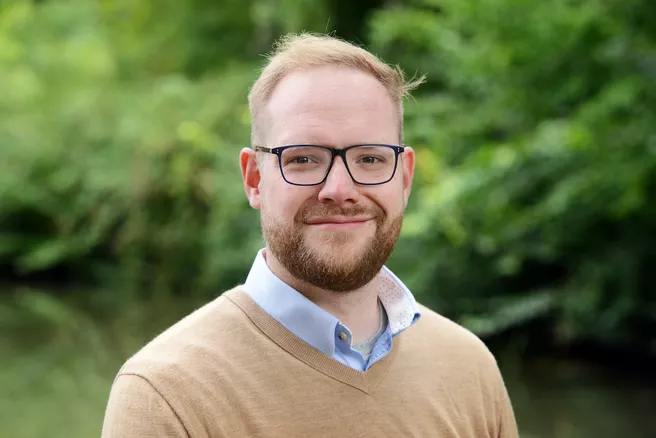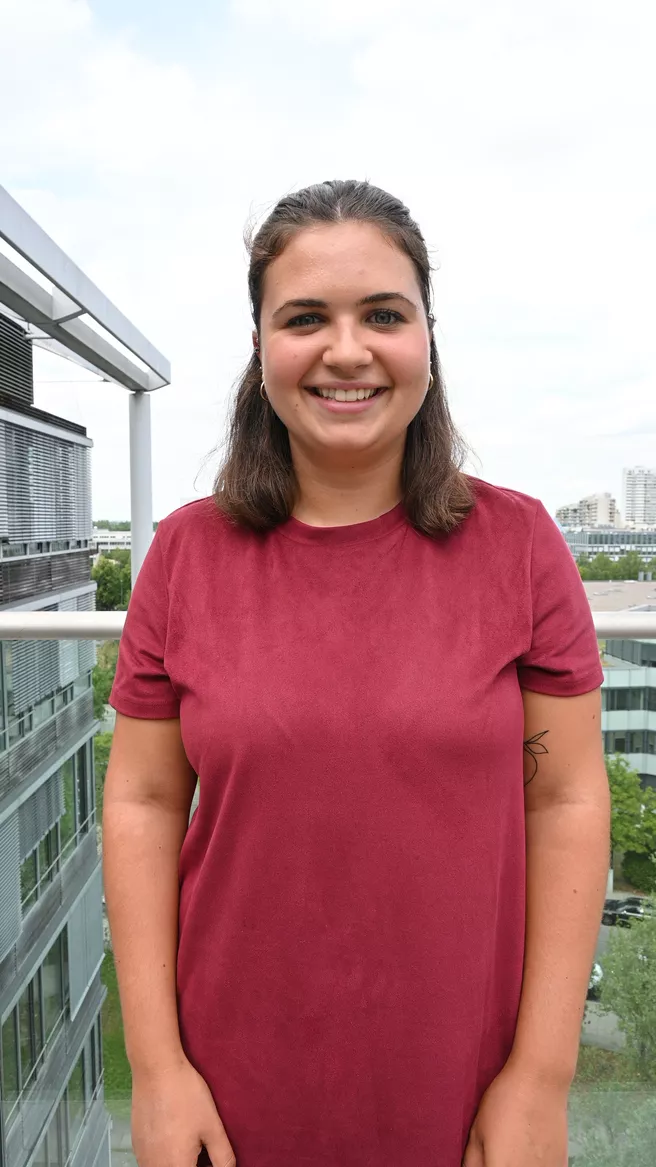Every summer, TUM invites excellent students from selected North American universities and Imperial College London to spend approximately nine weeks in research as part of the Practical Research Experience Program (TUM PREP). The participants gain valuable insights into the research work at Germany's top-ranked technical university and can expand their professional and methodological qualifications.
From July 3 to September 2, Hannah Ulman, a student in "Operations Research and Financial Engineering" at Princeton University/USA, was a guest at the Department of Sport and Health Sciences. Together with Ojus Sharma, a student of Computer Science at The University of British Columbia (Canada), she worked on the topic "Individual circadian health care - using chatbots to promote circadian and sleep health (Light Bot)" at the Assistant Professorship of Chronobiology & Health headed by Prof. Dr. Manuel Spitschan. The two students were supervised by Dr. Anna Biller, postdoc at the Assistant Professorship of Chronobiology & Health.
The Institute of Media and Communication met Prof. Spitschan and Hannah Ulman for an interview shortly before the end of her stay at TUM.
Prof. Spitschan, in your view, what added value does the visit of foreign students, e.g. as part of the TUM PREP program, offer for a Chair or Professorship?
Prof. Dr. Manuel Spitschan: "By participating in the TUM PREP program, we have seen various advantages for us. First, students from abroad bring diverse perspectives, cultural insights, and a global view to their research projects and academic environment. This diversity can lead to innovative ideas and solutions. For another, these students can also bring technical skills that we do not have in our group. This allows us to expand our portfolio and the type of research we can do. In this year's TUM PREP cohort, we had the pleasure and privilege of working with two technically capable students from North America, which allowed us to make great progress on a software development project. I would also like to give special mention to postdoc Anna Biller, who did an excellent job supervising them."
What added value does the visit of foreign students provide for the Department?
Prof. Dr. Manuel Spitschan: "For the Department, hosting international students helps to create a global impact on the one hand, but also to promote our international reputation and support excellent research."
Ms. Ulman, you were part of Prof. Spitschan's team at the Assistant Professorship of Chronobiology & Health - how was your time there?
Hannah Ulman: "The TUM PREP organization is that when a Department has a certain project in mind they could use interns for they apply for the projects. My supervisors decided that they wanted to work on this and then applied for TUM PREP, chose us as students to work on it and then we actually started the project from completely scratch. It was really cool! They had a rough idea of what they wanted it to look like. They gave us almost complete freedom to evolve it into what we thought was appropriate. They came up with the project but we started it and had a lot of freedom.”
Prof. Spitschan, how were Hannah Ulman and Ojus Sharma able to support your Professorship during the nine weeks?
Prof. Manuel Spitschan: "Hannah and Ojus have supported a project by driving the development of a conversational agent for sleep and circadian health that we can now use in a feasibility and acceptance study. Their technical work has helped us move the project to the next phase."
Ms. Ulman, specifically, you worked on a project titled "Individualized Circadian Health Care - Using Chatbots to Promote Circadian Health and Sleep (Light Bot)." What exactly did you do?
Hannah Ulman: "The actual project was the development of a text-based chat bot on the messenger app Telegram. They have bots you can talk to and it’s very easy to create one. Telegram allows you to create your own bot whenever you want. So we’ve been making a bot and now it has a lot of functions with the aim of helping you learn about and improve your sleep health. There’s educational modules where you can learn different tips to improve your sleep health or take quizzes to learn what kind of sleeper you are. You can also set reminders to remind you to do certain things to improve your sleep health. We finished the chat bot during our last week because we had to wrap it up to have a product before we leave. You can find the bot on Telegram now if you search for the name ‘Helena’.”
How can a PREP student make an impact on a project like this?
Hannah Ulman: "It was really nice to have Ojus Sharma with me on the team and to work together. Two months is not that long but it’s a lot of working time to be able to come up with something. It depends a lot on how enthusiastic your supervisors are, how much support they are giving you and how much they’ve set up the project to be something that you can accomplish in two months. Our supervisors did a really good job of coming up with clear goals and achievable steps. We had daily and weekly meetings with the entire team and they did a really good job of bringing us in and giving us actual work to do. It’s a nine-to-five job so you are able to do work in that time and not be distracted by any school work. Our supervisors applied for PREP with a long-term project in mind, so for us as students it was very easy to be motivated to contribute to something that will continue after we leave.”
Prof. Spitschan, will your Professorship apply again to participate in the TUM PREP program?
Prof. Dr. Manuel Spitschan: "Yes, definitely we will participate again in the next TUM PREP application round."
Ms. Ulman, what are your plans after your stay at TUM?
Hannah Ulman: "I will start my senior year at Princeton University three days after flying back home. And I’m graduating next year in spring. A Princeton degree luckily opens a lot of doors and opportunities. A lot of Princeton students go to big cities like Seattle, San Francisco or Chicago. I would like to work in New York City as there are a lot of jobs there. But I hope to stay in contact with Prof. Spitschan and his team. We already connected through LinkedIn so I can keep up to date on what’s happening.”
Thank you very much for the interview!
To the homepage of the TUM PREP program
To the homepage of the Assistant Professorship of Chronobiology & Health
Contact:
Prof. Dr. Manuel Spitschan
Assistant Professorship of Chronobiology & Health
Georg-Brauchle-Ring 60/62
80992 München
phone: 089 289 24544
e-mail: manuel.spitschan(at)tum.de
Interview/Text: Romy Schwaiger
Photos: Romy Schwaiger/private


